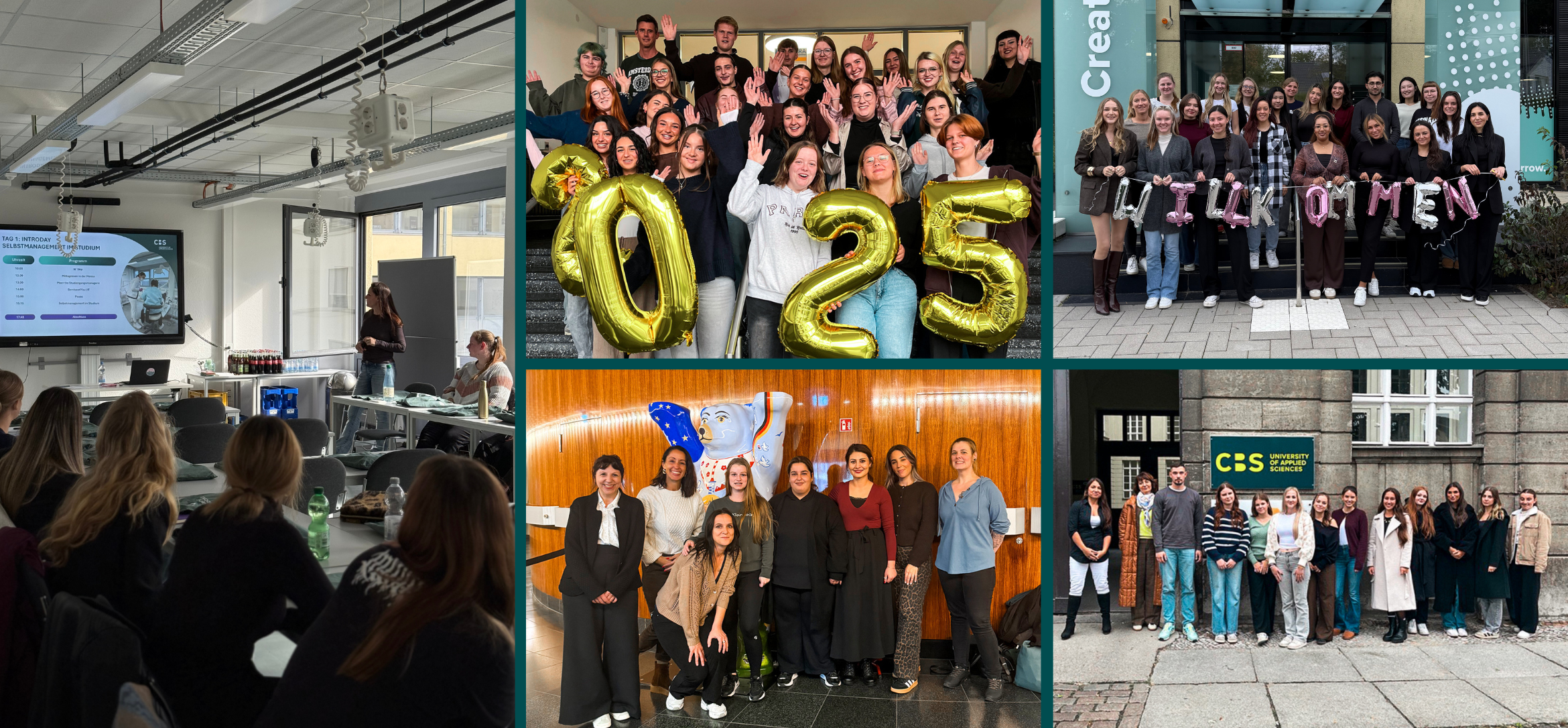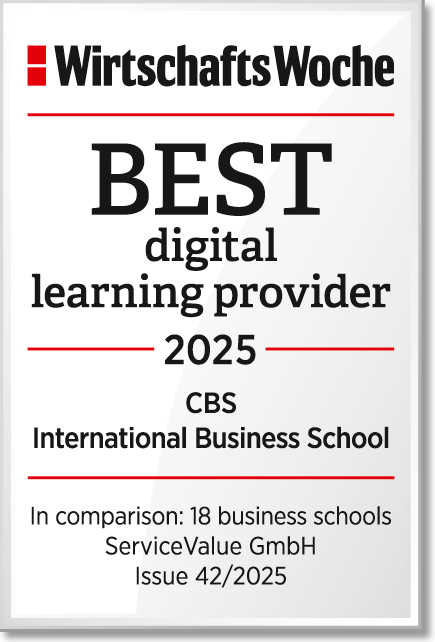Our mission at CBS is "Creating Tomorrow". We want to shape the future, together with our students, teachers, employees, our partners in business and science as well as in the cities in which we live. Hereby, a central question – on the individual as well as on a societal level – that guides this aspiration always is “In what kind of future do we want to live?”
While everyone will find answers to this question for their own individual lives and careers, we also want to explore how this question is being addressed on a collective, global level and how we as a business school can contribute to a positive future progress.
In 2015, the UN released its “2030 Agenda for Sustainable Development” as a “plan of action for people, planet and prosperity”. At the heart of the UN Agenda 2030 lies a clear roadmap of 17 goals that address today’s global challenges in different areas of action: The Sustainable Development Goals (SDGs). 169 specific targets back the 17 SDGs, in order to track global progress on the goals. Since their introduction, the SDGs have quickly become a guiding framework for positive impact within political debates. Moreover, they are today widely considered a leading guidepost for businesses around the globe, on their way towards future-fit practices, stakeholder-oriented action and positive impact. In the field of education, the UN PRME initiative highlights the role management education plays to accelerate this progress and to help achieve the SDGs together. Especially for business schools, institutions that educate leaders of tomorrow and play a crucial role in forming their skills and mind-sets, the SDGs can play a vital role in evaluating curricula and in guiding schools towards innovative and current practices in teaching and learning for their students.
Berivan Kul, a recent graduate in International Business from CBS International Business School investigated the current state of integration of the Sustainable Development Goals (SDGs) within the CBS curriculum in her Master Thesis. She further looked at future possibilities for extending the curriculum towards fields relevant to the SDGs, which CSB is currently not yet depicting within its study programs. Her research builds around a twofold process: First, a thorough analysis of the English CBS curriculum through module manuals and secondly, focus groups with experts in the field of responsible management education.
Through her analysis, Berivan was able to derive a comprehensive “SDG Teaching Map” illustrating the integration of SDG-relevant content within our CBS curriculum as follows:The graphic shows that CBS is already covering a large portion of content relevant to the global SDG targets within its curriculum. It is only within SDG 15 (Life on Land) that no targets are covered. Topics that so far are missing from our teaching map are predominantly located in the disciplines of public policy, various natural sciences (e.g. engineering), agriculture, international relations, health management and urban planning.
The “SDG Teaching Map” provides a great starting point for CBS to understand its curriculum through the lens of the global sustainable development agenda. Moreover, it helps us to visualize our levers for playing an active part in advancing the UN Agenda 2030 more clearly. It can act as a guiding compass to further develop our programs in a way that is innovative, solution driven, acknowledges our global challenges in a comprehensive manner and allows us to shape responsible future leaders who are equipped to create a flourishing tomorrow – not only for themselves but also for the societies that they live and work in.
Our participation in the Erasmus+ strategic partnerships ISSUE (Innovative Solutions for Sustainability in Education) and EFFORT (Effectiveness of Responsibility Teaching) are two excellent current examples of how CBS is already advancing its efforts towards more integrated and innovative teaching of sustainability within management education.
Learn more about sustainability & carbon neutrality at CBS
Our mission at CBS is "Creating Tomorrow". We want to shape the future, together with our students, teachers, employees, our partners in business and science as well as in the cities in which we live. Hereby, a central question – on the individual as well as on a societal level – that guides this aspiration always is “In what kind of future do we want to live?”
While everyone will find answers to this question for their own individual lives and careers, we also want to explore how this question is being addressed on a collective, global level and how we as a business school can contribute to a positive future progress.
In 2015, the UN released its “2030 Agenda for Sustainable Development” as a “plan of action for people, planet and prosperity”. At the heart of the UN Agenda 2030 lies a clear roadmap of 17 goals that address today’s global challenges in different areas of action: The Sustainable Development Goals (SDGs). 169 specific targets back the 17 SDGs, in order to track global progress on the goals. Since their introduction, the SDGs have quickly become a guiding framework for positive impact within political debates. Moreover, they are today widely considered a leading guidepost for businesses around the globe, on their way towards future-fit practices, stakeholder-oriented action and positive impact. In the field of education, the UN PRME initiative highlights the role management education plays to accelerate this progress and to help achieve the SDGs together. Especially for business schools, institutions that educate leaders of tomorrow and play a crucial role in forming their skills and mind-sets, the SDGs can play a vital role in evaluating curricula and in guiding schools towards innovative and current practices in teaching and learning for their students.
Berivan Kul, a recent graduate in International Business from CBS International Business School investigated the current state of integration of the Sustainable Development Goals (SDGs) within the CBS curriculum in her Master Thesis. She further looked at future possibilities for extending the curriculum towards fields relevant to the SDGs, which CSB is currently not yet depicting within its study programs. Her research builds around a twofold process: First, a thorough analysis of the English CBS curriculum through module manuals and secondly, focus groups with experts in the field of responsible management education.
Through her analysis, Berivan was able to derive a comprehensive “SDG Teaching Map” illustrating the integration of SDG-relevant content within our CBS curriculum as follows:The graphic shows that CBS is already covering a large portion of content relevant to the global SDG targets within its curriculum. It is only within SDG 15 (Life on Land) that no targets are covered. Topics that so far are missing from our teaching map are predominantly located in the disciplines of public policy, various natural sciences (e.g. engineering), agriculture, international relations, health management and urban planning.
The “SDG Teaching Map” provides a great starting point for CBS to understand its curriculum through the lens of the global sustainable development agenda. Moreover, it helps us to visualize our levers for playing an active part in advancing the UN Agenda 2030 more clearly. It can act as a guiding compass to further develop our programs in a way that is innovative, solution driven, acknowledges our global challenges in a comprehensive manner and allows us to shape responsible future leaders who are equipped to create a flourishing tomorrow – not only for themselves but also for the societies that they live and work in.
Our participation in the Erasmus+ strategic partnerships ISSUE (Innovative Solutions for Sustainability in Education) and EFFORT (Effectiveness of Responsibility Teaching) are two excellent current examples of how CBS is already advancing its efforts towards more integrated and innovative teaching of sustainability within management education.
Learn more about sustainability & carbon neutrality at CBS

















